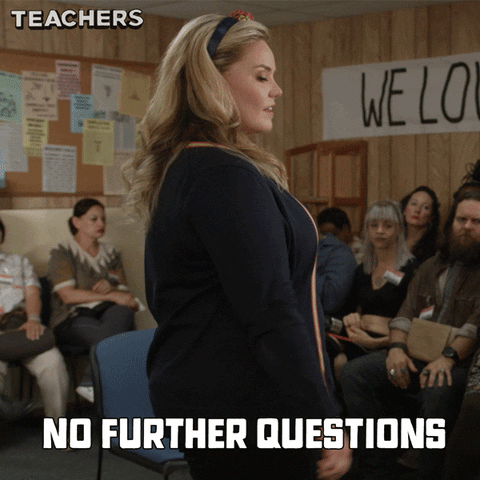6 things NOT to do in your graduate job interview
Hey guys! With interview season nearly upon us, all that fresh graduate talent about to hit the job market and, in some cases, up to 200 candidates applying for 1 graduate job vacancy, we wanted to share our quick guide on how best to sabotage your own chances of landing a job you love.
1. Turning up late for the interview
Get yourself off to a truly terrible start by announcing, “Sorry I’m late”.
Fail this most basic of tests and you’re setting the bar pretty low and will have a lot of making up to do to turn things around. Even if you nail the interview, the interviewer will have doubts about your time-keeping and will possibly fail you.
Use Google Street View to locate the office in advance of setting off and try to spot the entrance. Citymapper will find you the best route to get there but, even still, aim to arrive at the venue 10-15 minutes early in case public transport fails you. Better to be walking around outside the building for a few minutes until you press the buzzer or speak to reception, than rushing, flustered, and starting on the back foot. Be sure to check out the Contact Us page as employers often list the best transport routes to their offices.
Don't arrive too early either; your interviewer has a busy schedule and your early arrival can actually be disruptive. 5 minutes before is the sweet spot.
Don’t say we didn’t warn you!
2. Looking scruffy
Iron your shirt and clean your shoes. If you arrive looking dishevelled, you’re heading for an interview rejection. If you haven’t got an iron, take your shirt to the dry cleaners the day before and ask them to press it for you. It’ll be the best £1.50 investment you’ll have made in yourself for some time.
3. Not doing enough interview prep
Not doing enough interview prep, winging it and bull-shitting. It’s a slippery slope. Googling the company whilst you’re on the bus to your interview is a classic trait of the nearly man or woman.
OK, so you’ve managed to wing it this far by doing the bare minimum and your natural charm and confident chat have helped you talk your way in and out of situations previously. But the game has changed. You’re no longer the master. You’re the student.
Be sure to find as much as you can about the company, what they say about themselves, what others say about them, and make sure you can articulate and understand what they actually do (and how they make their money).
Our simple prep guide includes:
i. Check out the team on Linkedin – do you know anyone there (or do any of your friends?)
ii. What are they posting on Linkedin? Do you have any opinions on their content? What did you find interesting?
iii. Read the company blog. What are they talking about?
iv. Check out their Instagram page. What have they been up to recently?
v. Google and read any news articles. Google News should collate any recent press coverage but you can also check Crunchbase.
vi. Read the job description and think of examples of how you can relate what you’ve done with what they’re looking for.
4. Showing a lack of commitment to the company and/or role
Don’t for a second mistake “Where do you see yourself in 5 years’ time?” for lets-get-to-know-each-other small talk. This is a cleverly coded question meaning “Do you actually want this job, or do you see it as a stepping stone and are you going to disappear off travelling in a year, leaving us in the lurch, you little whippersnapper?”
“What else have you been applying for?” means “Have you been applying for totally random roles with no obvious direction (ZERO POINTS) or have your other interviews been for similar roles at similar companies (TEN POINTS!)?”
Don’t fall into these textbook interview traps. If you show a lack of commitment to the role or company, you’re not going to get past an experienced interviewer. But then again, if you’re not committed to the company or role, you probably shouldn’t be at the interview in the first place.
5. Nobody likes a show-off
You’re not at uni anymore, there are boundaries and being professional at all times is super important.
i. Don’t talk about how much money you have.
ii. Don’t talk about how privileged you are.
iii. Don’t tell the interviewer you can tap into private investor network to help fund their startup.
iv. Don’t flirt; it’s not a date.
v. Don’t call the interviewer “mate”.
vi. Don’t be over-familiar.
6. Having no interview questions to ask
“Do you have any questions for me?” asks the interviewer. If your response is, “Erm, no, I think we’ve covered everything,” you should probably think again. The interviewer is trying to work out if you’ve had any independent thoughts about the company and, more importantly, their market. Maybe we’re being a little harsh in saying you’ll get failed for this but it’s certainly an easy way to pick up bonus points by using this time as an opportunity to show you’ve understood the business’ challenges and are curious (and serious) about what the future might hold for you there.
Having a little panic and making up a question on the spot can come across as being unprepared. Instead, write a list of 3-5 questions you want to ask and make sure a) you cover what’s genuinely important to you and b) you showcase your research and critical thinking.

BrighterBox connects the fastest-growing companies with the brightest graduates.
Graduate Jobs



